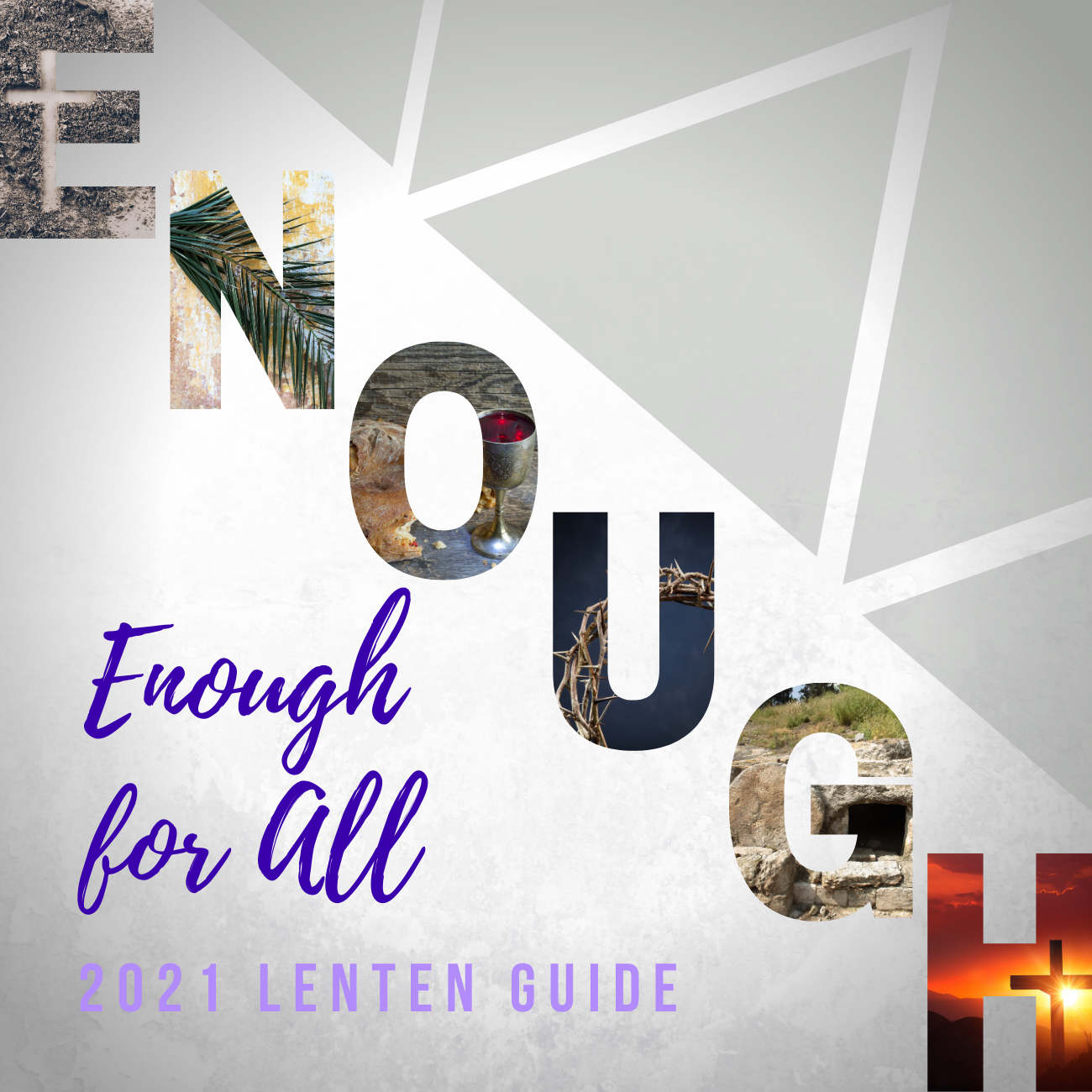Excerpted from Enough for All, a Lenten Guide for Lectionary Year B from the North Carolina Council of Churches.
My God, my God, why have you forsaken me?
Why are you so far from helping me, from the words of my groaning?
O my God, I cry by day, but you do not answer;
and by night, but find no rest.
Yet you are holy,
enthroned on the praises of Israel.
In you our ancestors trusted;
they trusted, and you delivered them.
To you they cried, and were saved;
in you they trusted, and were not put to shame.
But I am a worm, and not human;
scorned by others, and despised by the people.
All who see me mock at me;
they make mouths at me, they shake their heads;
‘Commit your cause to the Lord; let him deliver—
let him rescue the one in whom he delights!’
Yet it was you who took me from the womb;
you kept me safe on my mother’s breast.
On you I was cast from my birth,
and since my mother bore me you have been my God.
Do not be far from me,
for trouble is near
and there is no one to help.
Many bulls encircle me,
strong bulls of Bashan surround me;
they open wide their mouths at me,
like a ravening and roaring lion.
I am poured out like water,
and all my bones are out of joint;
my heart is like wax;
it is melted within my breast;
my mouth is dried up like a potsherd,
and my tongue sticks to my jaws;
you lay me in the dust of death.
For dogs are all around me;
a company of evildoers encircles me.
My hands and feet have shrivelled;
I can count all my bones.
They stare and gloat over me;
they divide my clothes among themselves,
and for my clothing they cast lots.
But you, O Lord, do not be far away!
O my help, come quickly to my aid!
Deliver my soul from the sword,
my life from the power of the dog!
Save me from the mouth of the lion!
From the horns of the wild oxen you have rescued me.
I will tell of your name to my brothers and sisters;
in the midst of the congregation I will praise you:
You who fear the Lord, praise him!
All you offspring of Jacob, glorify him;
stand in awe of him, all you offspring of Israel!
For he did not despise or abhor
the affliction of the afflicted;
he did not hide his face from me,
but heard when I cried to him.
From you comes my praise in the great congregation;
my vows I will pay before those who fear him.
The poor shall eat and be satisfied;
those who seek him shall praise the Lord.
May your hearts live for ever!
All the ends of the earth shall remember
and turn to the Lord;
and all the families of the nations
shall worship before him.
For dominion belongs to the Lord,
and he rules over the nations.
To him, indeed, shall all who sleep in the earth bow down;
before him shall bow all who go down to the dust,
and I shall live for him.
Posterity will serve him;
future generations will be told about the Lord,
and proclaim his deliverance to a people yet unborn,
saying that he has done it.
Psalm 22 is pretty intense.
The psalmist doesn’t hold back in describing his agony: he is scorned, despised, insulted. Attacked by ravening enemies, like mad dogs and bulls and lions in their ferocity. His heart is melted like wax, his very bones liquefied! Could there possibly be anyone else on earth whose suffering could reach such a fever-pitch of misery and lamentation?
Yes — Jesus, for one. Centuries beyond the psalmist’s begging, “My God, my God, why have you forsaken me?” the question arises from Jesus’ lips, as he hangs on a cross in first-century Palestine. Two centuries later, it continues to reverberate in the hearts of so many. Too many. Those who are scorned and despised because of the color of their skin. Those who are cruelly attacked because they love the “wrong” person. Who feel their hearts turned to wax, their very being disintegrating, as their loved one dies alone on a ventilator, and they know there will be noway to replace this loss, and no way to ever pay the medical bills.
Yet, despite the psalmist’s graphic lament, lamentation is not the final word here — for him, for us. Because we have the gift of faith, of trust. Of hope. Redemption. And it is remarkable that this is available to — everyone. Not only the poor, who will be satisfied, or the rich, who will worship and feast, but to all the families of all the nations. There is enough of God’s goodness for everyone.
I used to attend a church whose worship and ministry were focused on the homeless population of my city, yet open to everyone. The congregants were an even mix, of those who were gaunt and dressed in rags and reeking, and those clad in business attire, well-fed and prosperous and cologned. The suffering of some was visible and even shocking; the suffering of others was hidden, nearly unimaginable, until their voices rose up to name it aloud. Yet together in our singing, and our prayers, in our holding hands, the joy was palpable — because grace and mercy were ours. There was enough for all of us.

